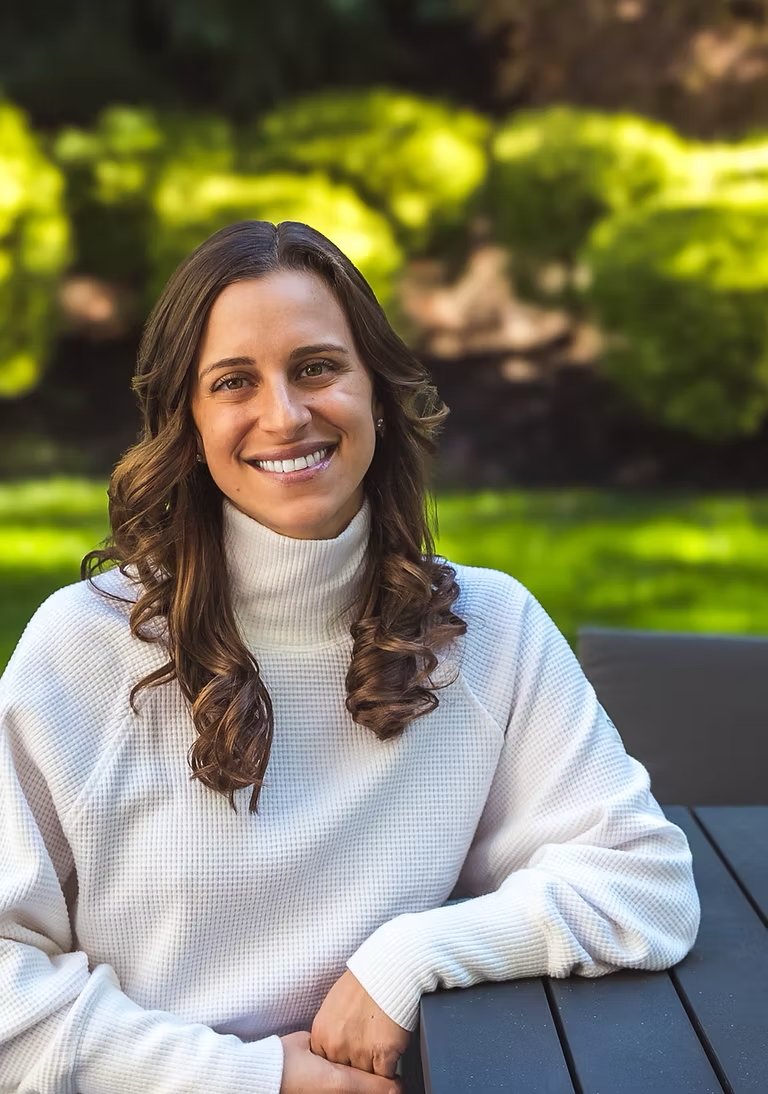OCD Therapy
Therapist
Dr. Michelle Litwer, Psy.D., PMH-C
My career has focused on treating anxiety and OCD.
I know how exhausting it is when your thoughts take over.
Do you feel stuck in a loop of unwanted thoughts and rituals?
Are you avoiding people, places, or activities because of what your OCD tells you might happen?
Is your world shrinking while your anxiety keeps growing?
When OCD is in charge, life gets smaller. The thoughts feel constant, and the rituals that were meant to help just seem to make things worse. Relationships suffer. Joy disappears. And everything starts to revolve around what feels “safe.”
You don’t have to live that way. OCD therapy can help you take your time, your choices, and your peace of mind back.
People Come to Me
When OCD Is:
Taking up hours of mental space
Making decisions based on fears
Creating distance in relationships
Blocking joy and rest
Fueling guilt, shame, or self-doubt
Controlling your routines
Types of OCD I Treat
-
Involves intense fear of germs, illness, or feeling "unclean," often leading to excessive cleaning, hand-washing, or avoidance. It’s not about being tidy. It’s about managing overwhelming anxiety through rituals.
-
Centers on unwanted thoughts or fears of causing harm to yourself or others, even when you never would. These thoughts can feel terrifying and isolating and often lead to compulsive checking or avoidance.
-
Involves intrusive, distressing thoughts related to your baby’s safety or your own ability to parent. Many new parents silently suffer, afraid of what the thoughts mean. These thoughts are a common, treatable part of postpartum OCD.
-
Leads to hours of mentally analyzing, replaying, or trying to “figure out” thoughts, events, or feelings. It’s a mental loop that feels productive but only pulls you further into anxiety.
-
Fills your head with doubts about your partner, your feelings, or your relationship, even when everything seems fine. These thoughts can cause constant questioning, reassurance-seeking, or checking behaviors.
-
Involves repeated behaviors like checking locks, stoves, or emails, often driven by fear of making a mistake or causing harm. You may know the behavior isn’t rational but the fear feels too strong to ignore.
If you’re constantly asking yourself “What if?”, running mental loops, or second-guessing your every move, therapy can help you quiet the noise and move forward.

“The best time to start therapy is as soon as you’re thinking about it”
OCD Therapy With Me Isn’t About “Pushing Through”
The truth is: trying to avoid obsessions or stop the anxiety doesn’t work. That avoidance only makes OCD stronger.
In therapy, we’ll take a different approach. You’ll learn how to face fears safely, reduce compulsions, and take back control from your OCD - without losing what matters most to you.
We’ll work with evidence-based methods like:
-
The gold-standard treatment for OCD. ERP helps you gradually face feared situations without giving in to rituals, retraining your brain to feel safe without the compulsions.
-
Helps you challenge unhelpful beliefs and thought patterns - like “I should just be able to do this” - and reduce self-blame and rumination.
My OCD Therapy
Has Results:
ERP therapy is the gold-standard, evidence-based treatment for OCD, backed by decades of research and real results.
Clients who complete ERP with me often describe:
Freedom from Obsessive Thoughts
As intrusive fears lose power, your mind becomes quieter, calmer, and more focused.
Fewer Compulsions, More Control
You’ll learn to tolerate uncertainty without relying on rituals—building confidence in your ability to face fear.
A Return to Joy and Presence
With OCD no longer running the show, you can fully engage in relationships, interests, and daily life again.
Dr. Michelle Litwer, Psy.D., PMH-C
I work in-person in Philadelphia +
via telehealth across 43 states.
I’m a licensed clinical psychologist and mom of two, with over a decade of experience treating OCD.
I’ve worked at the Anxiety Treatment Center, and I bring deep OCD training in Exposure and Response Prevention (ERP) + Cognitive Behavioral Therapy (CBT) to this work, plus a warm, practical approach that meets you where you are.
Education, Trainings, & Certifications
Psy.D., Clinical Psychology, Nova Southeastern University
B.S., Psychology, University of Florida
OCD Specialty Training since 2013 – including ERP for harm OCD, postpartum OCD, contamination OCD, and more
Advanced Training in CBT, DBT, ACT, ERP, PE, and CPT
DBT Intensive 10-Day Training Course (Part I and II), Charlie Swenson, M.D., Nachas Consulting, Brooklyn, New York
Staff Psychologist & Postdoctoral Fellow, CBT/DBT Associates
Predoctoral Internship, Faulk Center for Counseling (APA Accredited)
4 Steps To Start
OCD Therapy
-
Fill out the free consultation form, and we’ll find time to chat. It’s your chance to ask any questions and see if I’m the right fit to work with you.
-
If we decide to move forward, we’ll schedule an intake session. This 60-minute appointment gives us time to explore what’s bringing you in and lay the groundwork for therapy.
-
In our first meeting, you can expect a comfortable space to share what brings you to therapy, and we'll begin to explore your goals and how we can work together to achieve them.
-
Each session is personalized to your needs. Together, we’ll build insight, practice new skills, and work toward meaningful change.
Let’s End
OCD’s Cycles
OCD therapy isn’t about fixing, it’s about deprogramming to take your life back from thoughts.
Whether you’re stuck in compulsions, navigating intrusive thoughts, or just want to feel more like yourself again, you don’t have to do this alone. Therapy offers the skills and support to move forward with clarity and strength.




